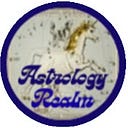Is Astrology and Zodiac the Same? (Answered!)

This article may include affiliate links, which means that if you click on one and decide to purchase something, I may receive a small commission at no extra cost to you.
(Human directed ai content.)
Is Astrology and Zodiac the Same?
Astrology is a broader field that encompasses various practices, including the study of celestial bodies’ positions and their purported influence on human affairs. The Zodiac is a specific component of astrology, referring to the division of the celestial belt into twelve equal parts, each associated with a particular constellation and representing different personality traits and characteristics. So while astrology includes the study of the Zodiac, it also encompasses other aspects such as horoscopes, planetary movements, and interpretations of celestial events.
Astrology and the zodiac are often used interchangeably, leading to confusion about whether they are the same thing or if they refer to different concepts. While they are closely related, they are not identical. Understanding the distinctions between astrology and the zodiac can provide clarity on these ancient practices and how they influence our lives.
Astrology: A Cosmic Language
Astrology is a belief system that suggests a correlation between the positions and movements of celestial bodies, such as planets and stars, and events on Earth, as well as individual personalities and destinies. It has a rich history dating back thousands of years and has been practiced in various forms across cultures worldwide.
Click Here For Free Astrology Reading
At its core, astrology operates on the principle of symbolism and interpretation. Astrologers analyze the positions of celestial bodies at the time of a person’s birth to create a birth chart, also known as a natal chart or horoscope. This chart is a snapshot of the sky at the moment of birth and is believed to reflect the unique energies and potentials inherent in an individual’s life.
The practice of astrology encompasses a wide range of techniques and traditions, including Western astrology, Vedic astrology (Jyotish), Chinese astrology, and others. Each tradition has its own methods, symbols, and interpretations, but they all share the fundamental premise of cosmic interconnectedness.
Astrology explores various astrological elements, such as the positions of the sun, moon, planets, and astrological houses, as well as aspects and angles formed between them. Through these elements, astrologers seek to gain insights into personality traits, life patterns, relationships, and potential future events.
The Zodiac: A Celestial Framework
The zodiac is a fundamental concept within astrology, but it is not synonymous with astrology itself. Instead, the zodiac serves as a symbolic framework used to divide the celestial sphere into twelve equal segments, each associated with specific constellations or star patterns.
The word “zodiac” derives from the Greek word “zōidiakòs kýklos,” meaning “circle of animals.” In Western astrology, the zodiac is divided into twelve signs, each representing different archetypal qualities and characteristics. These signs are Aries, Taurus, Gemini, Cancer, Leo, Virgo, Libra, Scorpio, Sagittarius, Capricorn, Aquarius, and Pisces.
Each zodiac sign is associated with particular traits, strengths, weaknesses, and tendencies. For example, Aries is often characterized as bold, assertive, and adventurous, while Cancer is described as nurturing, intuitive, and emotional. These attributes are derived from the symbolism and mythology associated with the constellations after which the signs are named.
In addition to the Western zodiac, other cultures have their own zodiac systems. For instance, the Chinese zodiac comprises twelve animal signs, each corresponding to a lunar year in a twelve-year cycle. Similarly, the Vedic astrology of India utilizes a zodiac system known as the “nakshatras,” which divides the celestial sphere into twenty-seven lunar mansions.
Click Here For Free Astrology Reading
Conclusion: Complementary Concepts
In conclusion, astrology and the zodiac are closely intertwined concepts, but they are not synonymous. Astrology encompasses a broad range of practices and beliefs centered around the cosmic connections between celestial bodies and human experiences. The zodiac, on the other hand, provides a symbolic framework within astrology, dividing the celestial sphere into twelve segments associated with specific personality traits and archetypal energies.
Understanding the distinctions between astrology and the zodiac can deepen one’s appreciation for these ancient practices and their relevance in contemporary society. Whether viewed as a tool for self-discovery, a means of understanding interpersonal dynamics, or a guide for navigating life’s challenges, astrology and the zodiac continue to fascinate and inspire people around the world.
Read More…
“Unveiling the Capricorn Female Persona: Exploring Distinctive Traits and Earthy Charms”
LEGAL INFORMATION
Any links in this article, may be affiliate links. Using my links is free at no extra cost to you, and helps to support my channel. Information in
the articles is not business or investment advice, and these articles are created primarily for entertainment purpose. Thank you for your support!
